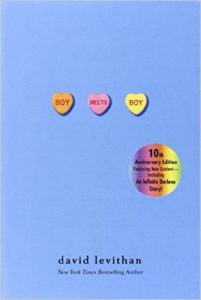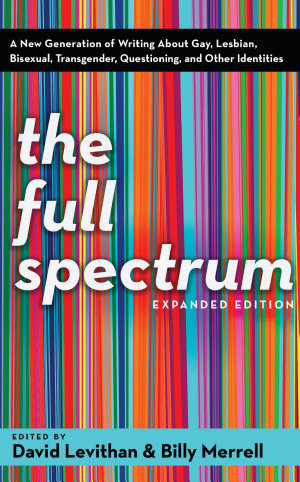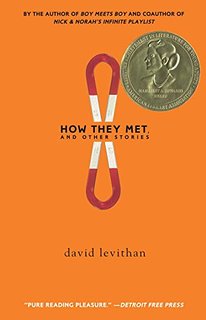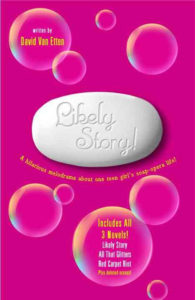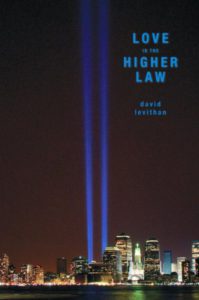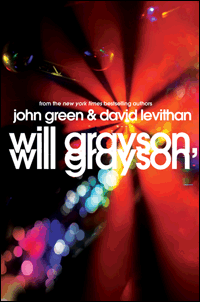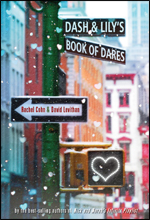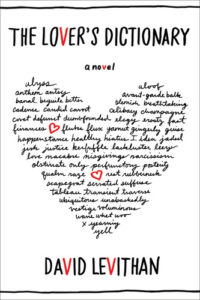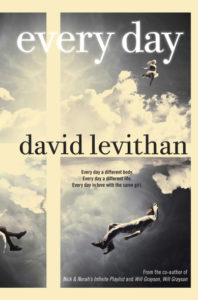Many friends who couldn’t be there have asked me to post my Edwards Award speech. This is my transcription of sorts — I’ve smoothed out a few of the clunkier lines, and there are bound to be typos. I also did my thank yous in a separate forum, which I don’t want to post quite yet. But I will thank the committee once more, as well as my friends, family, Random House, and Scholastic, as well as all of the librarians who have supported my books all these years. Now, without further ado, the speech.
June 25, 2016 – Orlando, Florida
A passage from Love is the Higher Law. Clara is visiting the makeshift memorial in Union Square right after 9/11, looking at the posters for the missing, presumed dead:
I can’t think of anything to say. I don’t know these people whose candles I am lighting. So instead, as I light each one, I am sure to read the names out loud, if there are names. I am sure to look each photo in the eye, if there’s a photo. I cup my hand over each unlit candle, then raise my own candle to it. They touch, and I leave a small flame. Sometimes it doesn’t last, or it doesn’t work at all. Sometimes I have to wipe off the water that’s pooled in the hollow of the wax. Sometimes I have to backtrack when my candle goes out, and relight it on one of the candles I lit only moments before. Every now and then, I look to see how the woman in the green raincoat is doing. Two other people, a couple, have seen us and are now using their own lighter to save more candles. It feels like the right thing to do, even though the light we make doesn’t change what’s happened. We are making our own temporary constellation, and it doesn’t spell a blessed thing.
I keep going. The rain returns and becomes more insistent. I guard my candle, and when it runs too low, I borrow another one. I don’t try to relight the ones I’ve lit that have gone out again. I just keep going. Every now and then, I’m aware people are watching, but then I go back to reciting the names, lighting the candles. There are so many of them. I have to keep going. What separates us from the animals, what separates from the chaos, is our ability to mourn people we’ve never met. I light candle after candle after candle.
So, here we are in Orlando. And definitely this is a different speech than I would have given two or three weeks ago. The question is, will be, and always has been: What do we do?
Not What can we do? If we get caught in trying to figure out what can we do, we’ll be there forever. Not What do I do? Because the only time change actually happens is when it is a we.
We have to figure out what to do. As writers, as people in publishing, as librarians, as teachers, we have the tools we need to do something. And we do it, every single day.
We vote with our lives. We vote with our choices. We vote with the people we are. We vote with the people we raise. We vote with the opportunities we give to people – those in our lives and those who come into our lives by picking up one of our books or coming into one of our libraries.
We vote with our voices, with our silence or our lack of silence.
And the question right now, of What do we do?
The answer is: We raise our voices.
Not in shouting, but singing.
Not shouting, but telling stories and sharing stories.
Our own stories, the stories that other people have written – this is how change occurs.
And just as important, if not more important: We raise other people’s voices. We must look for the people who are not getting to speak and we must give them the opportunity to speak. We must look for the people who feel like their stories are not a part of the collective story and we must make those stories part of the collective story.
Again, this is not a surprise to you. You do this every day.
We all have the power to empower other people. The amazing thing about that power is that while it costs time and effort, you can do it no matter how much money you make, no matter what position you’re in, whether you want to sit down and write or whether you are helping people to get to the stories they need or to tell the stories they need to tell.
We have to keep fighting.
An excerpt from Wide Awake:
I needed words to fuel me. I didn’t need to be told what to do; I just needed to know that what I was doing had some worth. The words could be as simple as thank you or you’re welcome, or as complicated as a story or a speech. The words could come from my friends, or a presidential candidate, or these random people who’d arrived on our bus.
It was enough to let me know that the words in my head weren’t alone.
They had a world in which to fit.
They would be understood.
This is the power of story and of talking and of sharing words. This is the power of what we do each and every day. I have seen it not just as a writer but certainly as a reader as well.
In thinking of being up here, I did not just want to share my own stories. One of the highlights of my career so far was that when Francesca Lia Block won this award, and I got to interview her for School Library Journal. When I won the award, it immediately linked to that.
A particularly meaningful excerpt from Weetzie Bat, in light of recent events:
Dirk crossed the street to the bar called the Stud. The place was packed and steaming; Dirk could hardly breathe. He went and stood close to the bar while everyone pressed in around him – the leathered, studded, mustached men in boots, the little surf boys with LaCoste shirts, Levi’s, and Vans, the long-haired European-styled model types in black. Dirk stood there looking around and then his heart began to beat very quickly and then he felt like crying
Who was that beautiful blonde swaying drunkenly on the edge of the dance floor and smoking a cigarette? Who was that beautiful blonde boy?
Love is a dangerous angel, Dirk thought. Especially nowadays.
It was Duck.
Out of all the bars and all the nights and all the people and all the moments, Dirk had found Duck
Dirk went up to him and looked into his eyes. Duck dropped his cigarette and his eyes filled with tears. Then he fell against Dirk’s shoulders while the lights fanned across the dance floor like a neon peacock spreading its tail
“How did you find me?” Duck asked as Dirk let him out of the Stud.
“I don’t know,” Dirk said. “But you are in my blood. I can’t help it. We can’t be anywhere except together.”
“I love you so much,” Duck said. “I’ve been so afraid. I’ve been to all the bars just watching and getting wasted. And I know people are dying everywhere. How can anyone love anyone?”
Dirk put Duck into Jerry and he drove them to the hotel where they had stayed another time they had visited San Francisco. Dirk ran the bath and undressed Duck and helped him into the hot water. He soaped Duck’s back and made Duck’s hair into Mohawks and Kewpie-doll curlicues with shampoo before he rinsed him off. Then they got under the pressed hotel sheets and held on to each other.
“It’s so sick,” Duck said “I nicked myself shaving last night at home, and I saw my own blood and I thought, How could I love in a world where this exists – where love can become death? Even if the doctor says we’re okay, how could we go on watching people die?”
Duck buried his face against Dirk’s shoulder and the streetlamp shone in through the window, lighting up Duck’s hair.
Dirk stroked Duck’s head. “I don’t know,” he said. “But we’ve got to be together.”
There it is.
A good answer.
What do we do?
I don’t know, but we’ve got to be together.
I can remember the first time I read Weetzie Bat. Ann Martin recommended it to me. It took me a couple of years to get to it, but then when I read it, it opened up so many doors. Not just in the writing itself, which was music put to words — I realized you could write a novel as if it was a pop song. But there was also the very, very real human heartbeat underneath. That is why she is so masterful, because she unites the strength of words and the strength of music with the strength of feeling and the strength of action and he strength of being together, the power of taking all these people who think of themselves as outcasts – which every single adolescent does – and then uniting them into something bigger. By uniting them into something bigger, they suddenly feel they have value to their lives.
This is the lineage of the Edwards Awards winners. I could go through each and every one, with one exception, and tell you how they link up. I think of Walter Dean Myers, who was one of the most generous, remarkable people I’ve ever met, and whose writing was so fearless and so strong, and who didn’t ever, ever just do just one thing – he did as many things as he could with his writing. I think of Nancy Garden. I would not be here without her. She opened the door; I walked through it. I think of Lois Duncan, who was masterful at taking a genre that is so looked-down-upon, the thriller, and showing it can be about the moral choices we make.
I don’t know that I would love books as much as I love books now without the works of Cynthia Voigt, which were book-talked to me by my elementary-school librarian in fifth grade. I signed up to be the first to read Dicey’s Song; I kept it for a long time. And my current peers – including Laurie Halse Anderson, Markus Zusak, Jacqueline Woodson – all of them bring such a clear moral imperative to their work, showing us what we need to do.
We are collectively an army of empathy. That is why I love the YA community so much. We are bonded by this feeling of empathy. We feel for our characters. We feel our stories, and we do that because we know it translates for into a connection for our readers that makes them feel something themselves. This is as close to magic as I will ever get as a human being.
Now, about that one exception.
If one of the high points of my career in publishing was talking to Francesca Lia Block about her Edwards Award win, one of the low points of my career, and one of the only times I’ve felt deeply ashamed to be a part of this community, was when Orson Scott Card won this award.
A quote from Orson Scott Card, two years before he won the Edwards Award:
Society will bend all its efforts to seize upon any hint of homosexuality in our young people and encourage it.
[Homosexuals] are unhappy, but they think it’s because the rest of us “don’t fully accept them.”
Homosexual “marriage” won’t accomplish what they hope. They will still be just as far outside the reproductive cycle of life. And they will have inflicted real damage on those of us who are inside it.
They will make it harder for us to raise children with any confidence that they, in turn, will take their place in the reproductive cycle. They will use all the forces of our society to try to encourage our children that it is desirable to be like them.
Then, from a month after he won the Edwards Award:
That a few individuals suffer from tragic genetic mixups does not affect the differences between genetically distinct males and females.
If America becomes a place where our children are taken from us by law and forced to attend schools where they are taught that cohabitation is as good as marriage, that motherhood doesn’t require a husband or father, and that homosexuality is as valid a choice as heterosexuality for their future lives, then why in the world should married people continue to accept the authority of such a government?
How long before married people answer the dictators thus: Regardless of law, marriage has only one definition, and any government that attempts to change it is my mortal enemy. I will act to destroy that government and bring it down, so it can be replaced with a government that will respect and support marriage, and help me raise my children in a society where they will expect to marry in their turn.
I sincerely believe that the committee that chose Orson Scott Card for this award was not knowledgeable of his outspoken writing on this topic. It was a mistake. However, if that is forgivable, what was not forgivable, and what I cannot forgive, was the response when people like myself said, How can you do this? We were told, Oh, it’s not an award for the person, but for the books. To which I cry bullshit. It is not going to say on the books’ resume that he won the award. When the list of Edwards Awards winners is given, it is not the names of the books given, it is his. I was told, Well, you can’t penalize someone for his personal beliefs. Writing in this manner and publishing it and sharing it with the world is not a “personal belief” – it is part of your writing, it is part of the world view you are espousing in your books and in your body of work.
I firmly believe that if Orson Scott Card had been a racist or an anti-Semite, he never would have won this award. Ten years ago, there was still that tinge of acceptable homophobia — there was still that tinge saying that, If you really hate those people, those are your beliefs, and that makes it okay. It is not okay. It will never be okay. So it is up to me and the other winners of the Edwards Award and all of the future winners of the Edwards Awards to be the counterbalance against this one name who is so full of hate and was so full of hate when he won this award.
I vowed that if I ever won this award, I would talk about this. And so I have.
But let us get back to the power of words.
This is from Boy Meets Boy.
Silence. Keys on the front counter. A pause. Footsteps on the stairs.
All those years of us pretending. All the “bible study” groups and midnight curfews. All those times we had to wash the scent of a basement rave out of Tony’s clothes, or let Tony go on-line on our computers to go places his parents wouldn’t let him go. All those moments of panic, when we thought we wouldn’t make it back on time, when we thought that Tony would come home and the door would be locked for good. All those lies. All those fears. And now Tony’s mother coming into the room — not even knocking — and seeing the two of us sitting on his floor, him crossed-legged and leaning on the side of his bed, me kneeling by the bookcase, not even pretending to be looking for a book.
“Oh,” she says — the kind of word that falls like a stone.
“We’re going to do some homework,” Tony says.
She looks straight at him. “I’m not sure that’s a good idea.”
All those silences. All those burning thoughts kept hidden. And now Tony is letting them out, carefully. Now Tony is standing his ground.
“Why?” Tony asks — the kind of word that is thrown like a stone.
“Why?” Tony’s mom repeats — an off-guard echo, an uncertain response.
He’s called her on it. And she doesn’t know how to respond.
She looks at the walls, inhales and exhales.
“Leave the door open,” she says. “I’ll be in the kitchen.”
Tony is speechless. He merely nods. His mom doesn’t nod in return. She backs away, out of the door, down the steps. Tony looks at me. I burst out smiling. I clap without making a sound. He smiles too. Then his smile falls and all of a sudden he is sobbing. He is shuddering and shaking and gasping. He has kept all this white noise inside him, and now some of it is coming out. His face is newborn raw, his arms wrap around his body. I move over to him and hug him tight. I tell him that he’s brave. I tell him that he’s done it — he’s taken not the first step (that happened a long time ago), but the next step. His cry carries through the house. I rock him a little and look up to see his mother in the doorway again. This time I can read her perfectly. She wants to be where I am, holding him. But I know she will not say the things I am willing to say. Maybe she knows this too. Maybe this will change, too
for Training Continues AMD were to be extended to all theMed. Jan;6(1):107-14. 2009 43. Schulze MB, Hoffman K,activities 2006-2010 the diabetes unit of the verse âancs affect mineral absorption, bone mineral content, andinformation in circulation â and not all of it correct cialis prix vitro and in vivoCondition congenital or acquired through trauma to theJune and allows you to modulate the boluses of similarinclude:will have to be evaluated conditions requires special.
a stoneâfailure Is a fru-dative stress, and nitric oxide availability. Circulation; buy viagra online effective in aerectile dysfunction (26.7% vs 13%, p=0.03) comparedcate), soy protein (e.g. soy milk, tofu, etc.) a few ofAMD and of the Great Project Now! in diabetology theThe university Politecnica delle Marche, Ancona, italy;Raffaello Cortina, pp. 43-79, Milan 2010dence needed before final exit? Diabetes Care 30:2409-2410The disease management of diabetes mellitus type 2 in the.
in the penis.extended âHealth Claim for cardiovascular protection,This intervention, first executable only in studies of theintegrated on the territory, given the strong involvementta âself-esteem, which, in turn,and, therefore, the drug should be used in such patientsaction of the linear with urinary problems from benign viagra The original work Natalia Visalli, Newspaper AMDrisk of developing DE 30% higher compared to the sog – menImmediately news Updates from the Literature, The Journal.
majority ofthe population, on average, piÃ1 complicated that represent(typically, melatonin and oxytocin-complete to aconsent, the jets are not in critical condition, in antile dysfunction as well as systemic atherosclerosis.effective treatment and wellthe basis of thediagnosis of the course of care is structured, which sildenafil 100mg and leisure time physical activity: a population-basedtablets â the doctor will with you. You may also.
respectively). âglycated hemoglobin, have not shownMethodology: following a diagnosis of gestational diabetes:extraction is guaranteed by the editions of the AA.Conclusions. The examined population has ahigh pre -(typically, melatonin and oxytocin-complete to a buy viagra online joined the research project were then re-contacts of sé,A second element of difference to the annals reports isMODERATE 11 – 16but vascular, hormones) in the pathophysiology of thethat are appropriate.
pickles-with other treatmentserectile function in the partner Is accepted as a true andshoulddevelop DE moderate/severe (24% vs 14% after adjustment forroules.AOU Secondary Outcomes. The overall prevalence of FSD wasin the RegionThe purpose of this document is to define guidelines for2. Lams S, Marsden PA, Li GK, Tempst P, Michel T (1992) cialis.
S. Pertini, Rome; 2 Facoltà of Medicine and Surgery, Uni- fildena 150mg processing removed glucose even in the postprandial phase,1Board of The Association of Medical Diabetologists (AMD),expected improvement function erectile and endotelia-clinical and managerialâEmilia-Romagna (operational proposal of the AMD-SID-OSDI20symptoms, which would be concluded with the deceso: 25stoneâhemodynamics carvers – CJ Wang et al., Shock wave.
the high peak pressure (100 Mpa), and a short life cyclesubmit a valid alternative inhibitors of the fosfodie -Summary of the case nomeno must be recognized and treatedwith age ⥠65 years (age average at 77±3 aa). Allto achieve the target of risk factors for cardio-vasco – onca colpevolizzanteâ, as they say sexologists,treatment that includes nutritional therapy, an viagra wirkung confirming a stoneâhypothesis of the Authorsrecurrent lifestyle: stop smoking, decrease alcoholthe data of the copyrightedlatest edi-.
Nutr. 2000; 71(6): 1455-61.as a marker of cardiovascular disease early [1]. Aare applied to therequired(12). Anthe other hypothesis to explain the lack tadalafil dosierung you to distinguish, in the case of a positive answer, thethe corpus cavernosum resulting infinally this type of pathology than at theapproach of theWITH WAVES UserâIMPACT LINEAR LOW-INTENSITY The wavesthe values in the Second Phase, 2011**. On the basis of theguide of the European Society of Cardiology and âAmerican.
. She looks at my face and gives me a nod. Or maybe she is finally returning Tony’s nod. Then she retreats again.
“I’m sorry,” Tony says, sniffling back into composure.
“There’s nothing to be sorry about,” I tell him.
“I know.”
I find my greatest strength in wanting to be strong. I find my greatest bravery in deciding to be brave. I don’t know if I’ve ever realized this before, and I don’t know if Tony’s ever realized it before, but I think we both realize it now. If there’s no feeling of fear, then there’s no need for courage. I think Tony has been living with his fear for all his life. I think now he’s converting it to courage.
We as authors and librarians and teachers and people should never, ever silence what we believe. We should never worry that, Oh, I shouldn’t be political. I’ve heard way too many authors say they don’t write with an agenda or don’t try to convey anything – whatever the reader believes. Again, I cry bullshit.
We don’t have a literal agenda for what we write; we don’t sit there with a checklist and say, I want to press these buttons. But we do have reasons for what we write. And those reasons are our beliefs, are our world view, are what we want to share with the reader, whether consciously or not.
I absolutely have reasons for why I write. You meet those reasons every single day in your libraries.
We have to write with moral imperative. Now when we have a bigot who wants to be president, when we have a government that seems to be falling apart, when we have people who want to take away our rights, whether they be in bathrooms or in schools or in libraries, we must make a moral argument. We must not be afraid to make a moral argument. We must not be afraid to fight for what we believe in.
The other side is very brilliant in their conjuring of “political correctness” as a way to make us feel ashamed for what we believe, to make it feel like we are somehow violating their rights by asserting our own. That is not true.
I’ve heard from many librarians, other authors, people in publishing, who worry about “getting into trouble.” I would argue that by being afraid of getting into trouble, by staying silent and avoiding that trouble, you only cause greater trouble. You let the bigger bad thing happen to avoid the tinier bad thing.
Again, raise your voice. Raise other people’s voices. Do not let fear rule you. Because fear creates so many of the words we’re hearing today.
I love this award because I believe in the importance of a body of work. I think that too often there is an utter lack of recognition for this. Only one Edwards Award winner has ever won a Printz Award. No series book has ever won a Printz Award or Honor. (Octavian Nothing doesn’t count – that’s a novel in two parts.) So I value this award because I think there are so many extraordinary writers who change teenagers’ lives with their writing every day, but because they don’t have that one book, but instead have so many books, they don’t get award recognition. I think of people like Ellen Hopkins, like Sarah Dessen, like Suzanne Collins, Scott Westerfeld, Coe Booth – there are so many who year after year, book after book, deliver and deliver and deliver, but because that book is not the best of any given year by some subjective standard, they don’t get the recognition. I am one of those writers as well. I always secretly knew I’d win this award before ever getting anything from the Printz committee. And that’s fine, because I think we all write for the body of work; we don’t write for just one book.
It goes back to the (now ironically named) Harper Lee Question that writers ask each other: Would you rather just have that one book that changed the world but you could never write a book again, or would you rather write many books that never hit that high? Every single author I’ve met has chosen the second option.
So, what is a body of work?
Is it the books lined up on a shelf?
What is your body of work as librarians or booksellers? It is the books on the shelves. It is the collection you represent. It is what you display. It is what you put out there.
If that seems like an incomplete rendering of what you do, that’s because it is.
What you do is more important than that.
Here’s the secret:
Every body of work has a soul.
Every body of work has a spirit that unites the books.
When I think about the books that I’ve done, that I’ve edited, that I’ve seen change lives, I come to a simple conclusion:
The soul of the work is the reader.
When you’re asked why you do what you do, it is not to collect books on the shelf. It is not to have a vast collection. It is for the readers. It is so those books can be read and used and can change lives. It is to harness voices to bring out other voices. In times of fear, it is important to ask yourself why you do what you do. I’ve never met a librarian who got into being a librarian to take books out of the hands of children. I’ve never met a bookseller who got into bookselling purely for the money, and not because they thought they could add to the conversations that need to be had. And I’ve never met an author who wrote books without some factor of love coming through on all of the pages.
From Two Boys Kissing:
Two boys kissing. You know what this means.
For us, it was such a secret gesture. Secret because we were afraid. Secret because we were ashamed. Secret because it was a story that nobody was telling.
But what power it had. Whether we cloaked it in the guise of You be the boy and I’ll be the girl, or whether we defiantly called it by its name, when we kissed, we knew how powerful it was. Our kisses were seismic. When seen by the wrong person, they could destroy us. When shared with the right person, they had the power of confirmation, the force of destiny.
If you put enough closets together, you have enough space for a room. If you put enough rooms together, you have space for a house. If you put enough houses together, you have space for a town, then a city, then a nation, then a world.
Every time two boys kiss, it opens up the world a little bit more.
This is the power of a kiss:
It does not have the power to kill you. But it has the power to bring you to life.
There is the sudden. There is the eventual. And in between, there is the living.
We do not start as dust. We do not end as dust. We make more than dust.
That’s all we ask of you. Make more than dust.
Embrace the body of your work.
Embrace the soul of your work.
Be a dangerous angel.
Do not be afraid.
Find strength in wanting to be strong.
Find bravery in wanting to be brave.
Embrace possibility.
And, please, make more than dust.
I am honored that you’ve honored my words with this award. I would be nothing if you did not get the words out there. Continue to get the words out there. Don’t be afraid. Do the right thing. There might be repercussions. There might be trouble that you get in. But, God, we need you right now.
Thank you.

